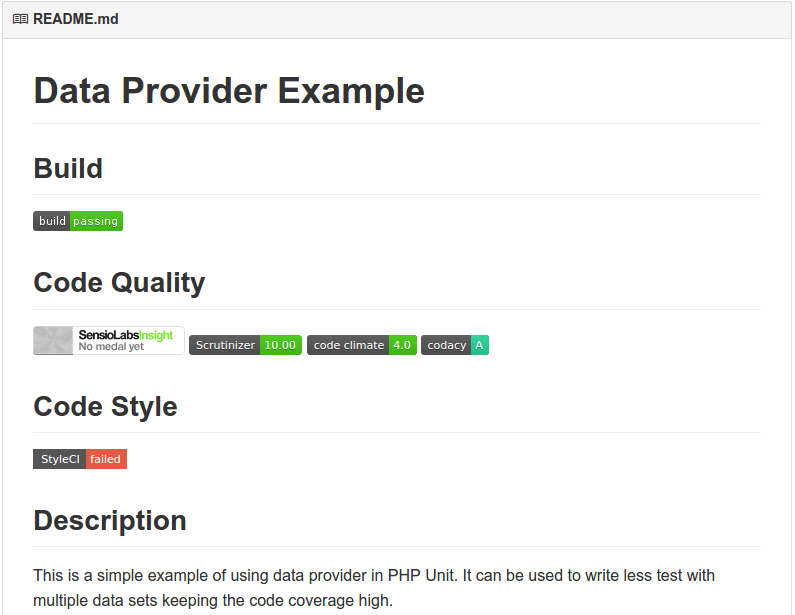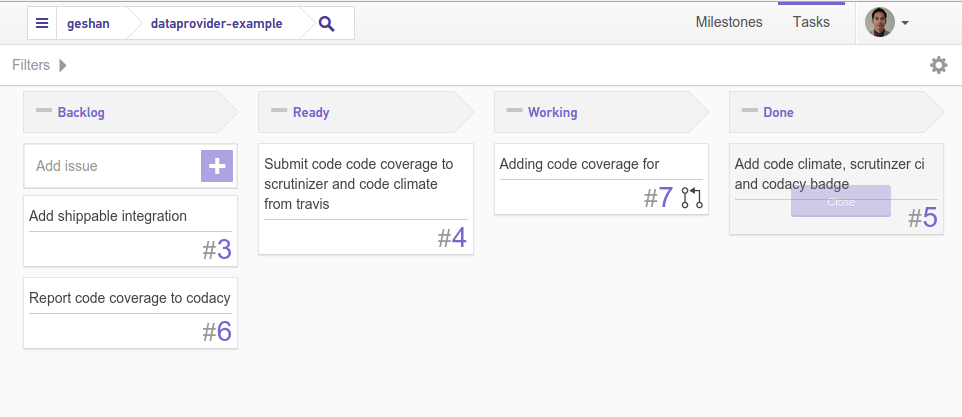Open source software (oss) are very popular in the software world, be it the server serving your web pages or the language/framework your website/webapp or even mobile app is written on, it is highly likely that its based on an open source software. As programmers this sprint of giving back to the community and helping others in form of Free and open source software is amazing. There are many open source PHP projects as well from frameworks to small libraries. It is a difficult yet rewarding experience to lead/support an open source project. If you are thinking of starting an open source project or open sourcing some part(s) of your existing system, this post has a checklist to assist you with it.

Intro #
It is taken for granted that you do the basics correctly like having a optimally descriptive readme, a license and probably a contribution guide on your project's Github repo. It is also assumed that as its PHP you are doing the basis right following FIG's PSR standards like
PSR-2 coding style guide and PSR-4 auto-loader standard. For this post I will use a template/boilerplate dataprovider-example as and example, the links will open for this project for services mentioned below. So after getting the basics right what more do you need to consider, lets have a look at the checklist:
1. Check and maintain Code Quality #
Just writing code that works might not be ideal for an open source project, also because the code you write can be read by anyone and used by anyone checking coding standard and code quality become a must. If you want to check your coding standard you can do it locally with PHP Code Sniffer, fix coding standard issues with PHP CS Fixer. For other local tools you can check PHP QA tools. In case you want a continuous integration service you can use Style CI which will check your coding standard matches PSR-2 or not on each push. It is free for open source projects.
In case of the code quality, there are many providers to choose from and again all of them are free to use for open source projects. They love open source software as we do too. Below is the list of some providers I have used/tried out:
- CodeClimate - Very good service, ranks your code in a GPA of 4. Has good code analysis and reports.
- Scrutinizer CI - Great code analysis, ranks your code in a scale of 10. Extensive settings and code reports.
- Sensiolabs Insight - Great code analysis, ranks your code with medals. Quite extensive code reports.
- Codacy - Good code analysis, ranks your code with A, B, C, D scale. Good settings and code reports.
As an example I am using a project with just 2 PHP files so you can see how powerful and deep the analysis for the code is for each of the above services. Which one to choose from the above, the choice is yours :)
2. Write Tests #
Writing tests for code is also important to verify that the code does what you expect and intend it to do. As generally open source projects are libraries Unit tests is recommended more than functional/integration tests. You can see an example test. Below are the two main choices of framework you have for writing tests depending on the style of testing:
- PHPUnit - The most popular PHP test framework, you can use it for a Test Driven Development approach.
- PHPSpec - The new emerging concept which some say are better than PHPunit, follows Behavior Driven Development approach.
Well the question is always there do you write test first or code first, IMHO whatever you do have tests that cover your code for the cases you know and you think are important.
3. Enable Continuous Integration #
Just writing tests will not be enough if it does not run on each push to the version control system (VCS) like git. So if you get fast feedback on what your new code did to the existing or new tests that would be very helpful to decide if your code in form of a Pull Request (PR) can be merged to the main branch (generally master. It is very important for open source so as to maintain stability and not break the application of anyone using your open source code. Bonuspoints if you submit the code coverage report to above mentioned code analysis services. Here too you have mainly 2 choices both of them are free for open source projects:
- Travis CI - The most popular continuous integration, fast and easy to integrate with any project.
There are lots of other CI services these days and most of them are free for open source projects, still I think Travis
makes a good choice for open source projects. The decision is yours again.
4. Publish to Packagist with sermver #
OK so you have setup a git repo and done all the above mentioned things. Next logical step will be to submit your open source PHP project to Packagist. It is supported by Composer php package manager and has as of writing has more than 64650 open source projects.
You will need to register and have a well
formatted composer.json in your git
repository to submit your package to Packagist. After you submit your project, any one looking for something similar like your project and search for your package and download it using composer. For clarity in version do use Semantic Versioning a.k.a SemVer.
5. Issue board with HuBoard #
Finally your project is being downloaded and used by other people and you are getting requests in form of issues to make changes or add features. Other generous and talented programmers are sending PRs to your project but how do you show what is being done and reflect on status of the project issues visually. Here is where
HuBorad comes to
your rescue. You can show the status of the issues as below to make all the interested people clear of what is happening in the form of a Agileish Kanban board:

Conclusion #
After checking all the items in the above checklist, be sure to be alert about issues and pull requests for the open source project. Successful open source project lead/members are quite alert and responsive to both issues created and pull requests sent to the project. You can use the data-provider example as a base template for writing your next open source project. Happy Coding.
